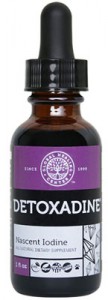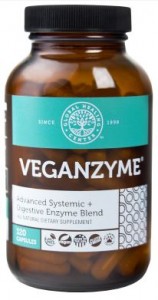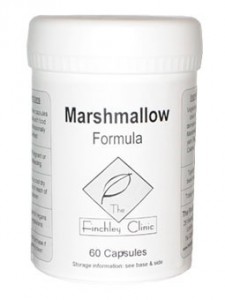Let’s face it; it’s not unusual this time of year to feel a little lacking in energy; a wee bit done in; rather sluggish. But is it normal? Should you shrug your shoulders and put up with it? Scientifically speaking, there’s no reason why you should accept having less energy at one time of the year (when it’s colder and the days are shorter) compared to another (when it’s warmer and the days are longer) – and that’s not to mention it’s not healthy either.
Why might you feel sluggish? Well, maybe you’re working hard, not getting as satisfactory a work-life-rest balance as you might and perhaps you’re not eating as healthily or getting as much exercise as you could – the latter being very common this time of year. The following are all specific reasons you might feel sluggish – and alongside them are ideas to boost your energy.
Low hormone levels
Low levels of certain hormones can play a big role in keeping energy levels low. Why? Well, your ability to think clearly and act effectively is compromised when your body isn’t producing and, thus, not using enough testosterone, oestrogen, thyroid hormones and human-growth hormones1. To ensure your body’s creating a sufficient amount of hormones then to keep you full of beans, you should aim to live a healthy lifestyle. What does this mean? Steer clear of pesticide-affected fruit and vegetables, boost your Vitamin D intake and get exercise (yes, in the winter months), but remember to take the time to rest too.
The thyroid effect
Of all hormone deficiencies that can leave you feeling sluggish, an imbalanced thyroid may be most significant. The hormones this gland produces are necessary for almost every organ in the body. Moreover, one of the major hormones it creates and supplies is Triiodothyronine (or T3), which is directly responsible for metabolic rate and influences modest changes in energy levels and body weight. Getting enough iodine (either through diet or supplementation) is crucial to ensure the work your thyroid does is balanced effectively2, but again, so too is getting enough exercise and sleep.
Too little exercise
Wait a minute; the more we exercise the more tired we’ll get, right? Well, more physically tired for a brief time, yes; more sluggish, no. The reality is that throwing yourself into either vigorous or light exercise on a daily basis encourages body functions (not least digestion), increases the acceptance of glucose (food) by cells throughout the body and activates significant parts of the brain – those that enable us to feel better psychologically, especially when it comes to us feeling more or less energised3.
Not enough B12?
Speaking of glucose-conversion in cells, Vitamin B12 is of critical importance for this to take place in our bodies effectively. Also referred to as cobalamin, B12 plays a crucial role in the creation of red blood cells, which carry glucose (potential energy, if you will) and other nutrients to organs via the bloodstream. Unless they’re careful to manage an entirely balanced diet, vegans may find they’re not getting enough B12 from food alone (as the vitamin tends to be derived mostly from animals), thus energy supplements could prove a decisive option for sluggishness linked to B12 deficiency.
Gut matters
It’s not unusual to feel lethargic when you haven’t passed waste and feel like you need to but can’t (that is, when you’re suffering from constipation), yet if you haven’t properly digested the food you’ve eaten there’s a more specific biological reason why you might feel sluggish. Basically, it’s likely you aren’t absorbing as many energy-supplying nutrients as you need to. If your gastrointestinal system is deficient in the enzymes that help you digest food then you simply won’t get the vitamins, minerals and glucose your body requires to function as it should – inevitably then, you’ll experience low energy levels. Digestive enzyme supplements could help here4.
Reducing stress can also aid efficient digestion – when you’re in a stressed out, ‘flight or fight’ state, digestion automatically stops as your brain deems it a low priority. Rest and exercise can help lower stress levels and aid your body in reaching the opposite state, the parasympathetic (or relaxed) state that supports digestion.
Energy-boosting tips
So to reiterate, there are many things you can do to boost your energy and reduce the opportunity for you to become overly sluggish; even exhausted:
- Diet – introduce into your daily intake organic raw vegetables, organic berries and nuts, herbs and seeds; aim to reduce the sugars you eat, but don’t cut down on calories altogether as you’ll need enough of them to burn to provide you energy
- Exercise and sleep – try to exercise vigorously or lightly every day and look to get least 7-8 hours of sleep a night
- Vitamin D – in addition to getting your fill of Vitamin B12, try to boost your levels of the all-important Vitamin D by getting out in the sun (but not too much in the summer), the point being that sunlight provides Vitamin D, which can help to balance the serotonin and melatonin levels in your body, thus stabilising its circadian rhythms; in turn ensuring your energy levels are in tune with your sleep-wake cycle
- Supplements – as noted above, supplements may help a great deal to banish that sluggish feeling; in their different ways the following (all available through The Finchley Clinic) are highly advised to augment the other lifestyle adjustments suggested:

Detoxadine (Iodine) (1floz) – a high-quality nascent iodine supplement (made from dietary transformative iodine) that helps balance the body’s iodine levels and thus supports thyroid health.
Sublingual Unique B12 (90 veg tablets and powder) – provides an infusion of B vitamins directly into the bloodstream to nutritionally support the nervous system and aid cardiovascular function; also contains folic acid and Vitamins B6 and B7 (biotin).

VeganZyme (120 capsules) – a popular digestive enzymes supplement that can help enhance the body’s digestive process and increase the nutritional value of your food.
References
1. Tuin J., Sanders J. S., Buhl B. M., van Beek A. P. and Stegeman C. A. ‘Androgen deficiency in male patients diagnosed with ANCA-associated vasculitis: a cause of fatigue and reduced health-related quality of life?’. Arthritis Res Ther. 2013; 15 (5): R117.
2. Laurberg P., Cerqueira C. and Ovesen L. ‘Iodine intake as a determinant of thyroid disorders in populations’. Best Pract Res Clin Endocrinol Metab. 2010 Feb; 24 (1): 13-27. doi: 10.1016/j.beem.2009.08.013.
3. Sharma A., Madaan V., and Petty F. D. ‘Exercise for Mental Health’. Prim Care Companion J Clin Psychiatry. 2006; 8 (2): 106.
4. Balakrishnan M. and Floch M. H. ‘Prebiotics, probiotics and digestive health’. Curr Opin Clin Nutr Metab Care. 2012 Nov; 15 (6): 580-5. doi: 10.1097/MCO.0b013e328359684f.



